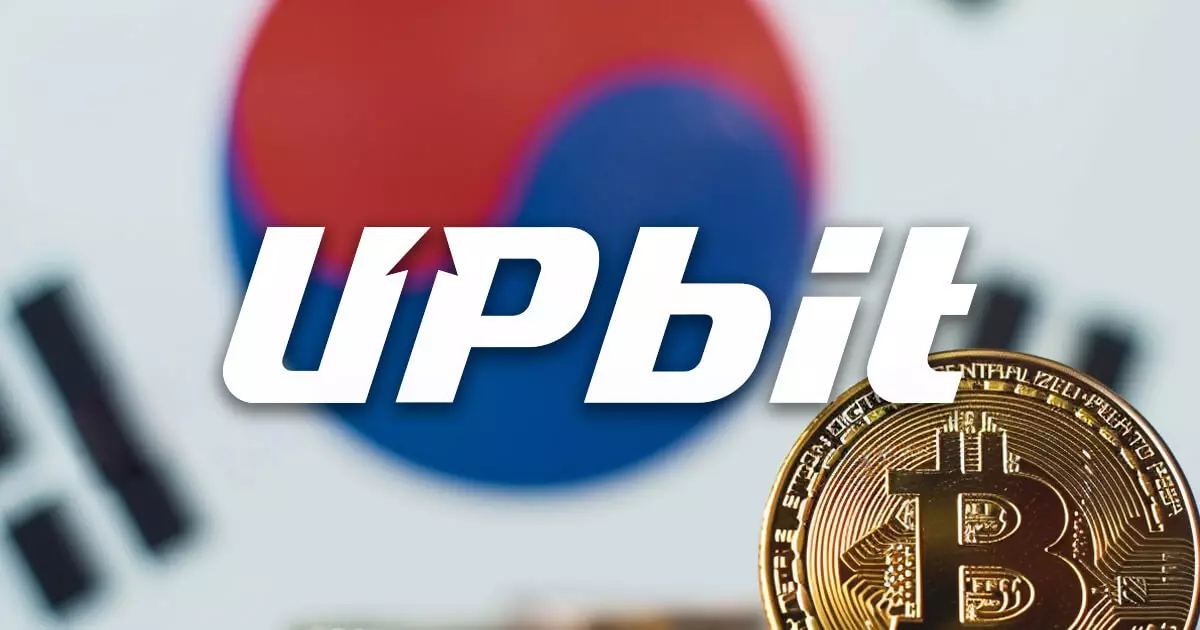In a proactive move, South Korea’s Financial Services Commission (FSC) is launching an inquiry into Upbit, the nation’s premier cryptocurrency exchange, as part of an overarching effort to ensure fair practices within the rapidly evolving digital asset market. This investigation is especially pertinent in light of the growing dominance Upbit commands in the cryptocurrency ecosystem, raising concerns about its potential impact on financial stability and market competition. Chairman Kim Byung-hwan’s confirmation of the investigation, reported by einfomax on October 10, signals a critical recognition of the interdependencies within the financial sector, particularly about emerging technologies and platforms.
Lawmakers, including Lee Kang-il, have voiced their concerns regarding Upbit’s substantial influence over K Bank, South Korea’s first internet-only bank. The intertwined nature of their operations cannot be overlooked, particularly as K Bank prepares for a significant Initial Public Offering (IPO), targeting approximately 984 billion won ($731.64 million). The potential upcoming listing may draw investors’ attention, but the reliance of K Bank’s business model on Upbit could pose significant risks. With Upbit representing nearly 20% of K Bank’s total deposits, any operational disruption at Upbit could lead to significant repercussions, including a potential bank run. Such risks highlight the systemic vulnerabilities that arise when financial institutions establish close ties with dominant market players.
Lee Kang-il’s critique doesn’t end with concerns about dependency; he also scrutinizes K Bank’s enticing deposit rates, claiming the offered 2.1% interest is financially unsound. Given the bank’s relatively modest profit margins, these high-interest offerings could lead to unsustainable business practices, illustrating a broader concern about risk management within financial institutions that engage in aggressive marketing tactics to attract clients. Furthermore, Lee emphasized a principle often overlooked in such relationships—the separation between finance and industry—which is crucial to safeguarding the integrity and stability of the financial system.
In response to these multifaceted concerns, the FSC aims to review K Bank’s plans for IPO meticulously. Meanwhile, the Virtual Asset Committee, tasked with overseeing aspects of digital finance in South Korea, will also probe the partnerships and contracts that could further entrench Upbit’s position in the market. This investigation comes on the heels of a collaborative memorandum of understanding (MOU) between Dunamu, Upbit’s parent company, K Bank, and BC Card—illustrating the merging of traditional banking with innovative digital finance.
As South Korea seeks to foster a vibrant digital financial ecosystem, the outcomes of this inquiry could shape regulatory frameworks and market behaviors for years to come. The blending of conventional banking practices with emerging digital industries necessitates robust oversight mechanisms, ensuring that growth does not come at the expense of financial stability. Ultimately, this investigation underscores a critical juncture in South Korea’s financial evolution, inviting a dialogue about the sustainability of partnerships that straddle traditional and digital finance realms. It raises essential questions about the balance required to nurture innovation while protecting consumers and the integrity of the financial system.
















